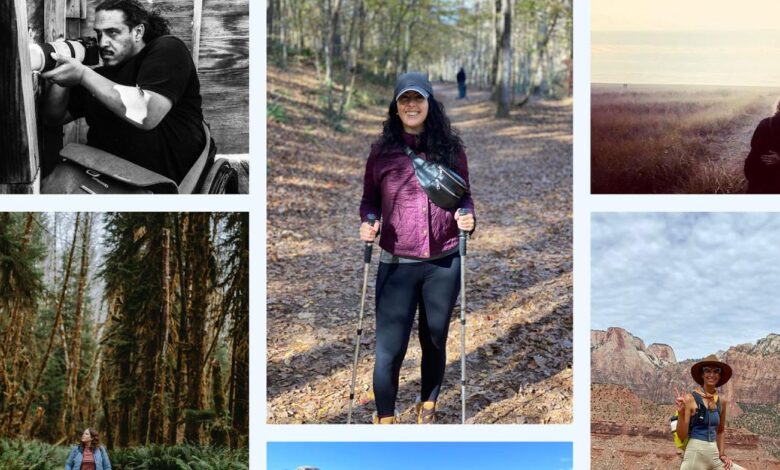7 disability advocates talk about accessibility and ableism outdoors

[ad_1]
Freya McGregor, currently in Alabama
Freya (she/her) is originally from Australia but now living in Alabama because she’s a military spouse. Through her business, Access Birding, she provides consulting and training services to nature organizations to help them improve access and inclusion for disabled birders and nature lovers. She is also writing a book about accessible birding in the U.S. for Princeton University Press, and is a research associate at Virginia Tech. Freya has a knee disability that made her shift to stationary birding, but she finds it just as enjoyable as the “traditional” practice—and an indication of how the pastime can be adapted according to each birder’s ability or comfort level.
For Freya, birding is a family affair. Her husband, who lives with PTSD, finds solace and relaxation on these outings in nature. It’s also a cross-continent bonding opportunity, as they share notes with her family overseas on birds from both North America and Australia.
But as with other outdoor recreation activities, Freya believes there is a cultural stigma around disability and many barriers to access. These barriers include physical barriers, lack of information, social assumptions and institutional shortcomings.
“There are physical, social, cultural and institutional barriers. Things like knowing detailed information about trail conditions ahead of time is important but for land managers, it’s not been a priority to get that information assessed, documented and put on websites and interpretive materials and maps.”
Freya emphasizes that recreation in outdoor spaces—and the health benefits and other positive effects that come with it–should be available to everyone. When these activities are made more accessible, it often ends up helping more than just people with disabilities. For example, she says that widening trails and more clearly delineating them tends to make most hikers stick to the path and avoid disturbing local plants.
To really promote inclusivity in birding and the outdoors, Freya says organizations and agencies should start by seeking expert advice from people with lived experiences (while compensating them fairly for their time); listening to the community’s needs; assuming competence in all individuals and treating everyone with kindness and respect; and recognizing that societal barriers, not individual disabilities, create barriers to participation.
[ad_2]
Read More



